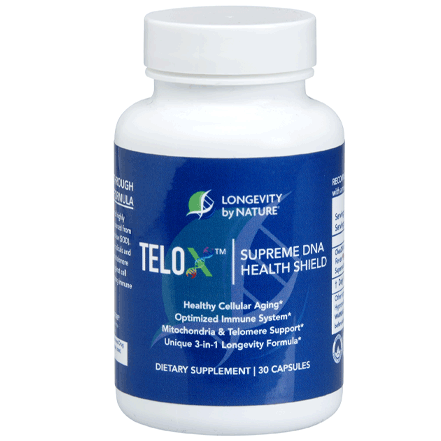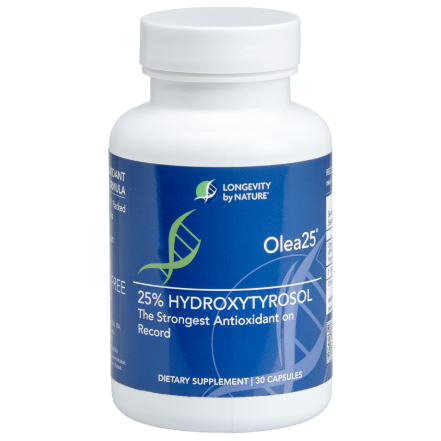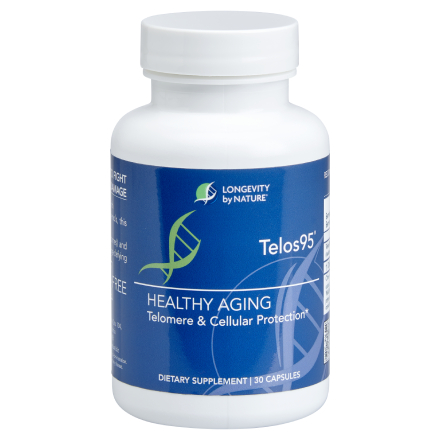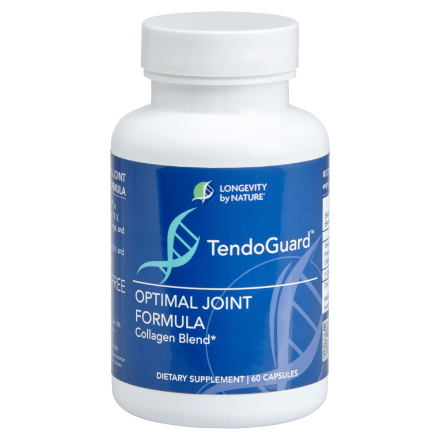New research links longer telomeres to better brain health. Telomere research’s future holds promise in personalized medicine, anti-aging therapies, disease prevention, and regenerative medicine. Longevity by Nature offers Telos95, a clinically proven telomere supplement, designed to extend telomere length, reduce cellular age, and promote overall well-being. Explore the possibilities of slowing the aging process while improving brain health with Telos95.
What are telomeres?
Telomeres are the protective caps or repetitive sequences of DNA located at the ends of chromosomes. They maintain the stability and integrity of the genetic material within a cell. Telomeres function like the plastic tips on the ends of shoelaces preventing them from fraying. Telomeres have several important functions:
Protection: Telomeres protect the ends of chromosomes from deteriorating or fusing with neighboring chromosomes. Without telomeres, genetic information could be lost or become scrambled during cell division.
Cell Division: During cell division, chromosomes need to be duplicated and segregated into daughter cells. Telomeres ensure the entire chromosome is copied and that the duplicated chromosomes are properly distributed to the daughter cells.
The Aging Process: Telomeres are often compared to a biological clock. With each cell division, telomeres shorten. When they become critically short, cells may stop dividing and contribute to the aging process.
Telomere length is influenced by genetics, environmental factors, and lifestyle choices. Shortened telomeres have been associated with age-related diseases and conditions.
How are telomeres related to aging and brain health?
Telomeres are associated with aging and brain health in the following ways:
Aging: Telomeres naturally shorten as cells divide and age. This shortening is considered a marker of biological aging. As telomeres become critically short, cells may enter a state called senescence, where they can no longer divide. This process contributes to the overall aging of the body, including the brain.
Brain Health: Telomere length has been studied in relation to brain health and cognitive function. Shorter telomeres are associated with cognitive decline, an increased risk of neurodegenerative diseases like Alzheimer’s disease, and poorer overall brain health. This suggests that maintaining longer telomeres may be beneficial for preserving cognitive function as individuals age.
Stress and Inflammation: Chronic stress and inflammation can speed up telomere shortening. Prolonged exposure to stress hormones and inflammation can negatively affect both overall health and brain health, potentially contributing to cognitive decline and age-related brain conditions.
Lifestyle Factors: Lifestyle choices, such as diet, physical activity, and stress management, can influence telomere length. Adopting a healthy lifestyle, including regular exercise, a balanced diet, and stress reduction techniques, may help maintain longer telomeres and support better brain health as people age.
Research and Interventions: Researchers are exploring interventions and strategies to maintain or lengthen telomeres as a potential means of promoting healthy aging and preserving brain function. While this area of study is still evolving, it holds promise for the future of age-related brain health.
In summary, telomeres are linked to both the aging process and brain health. Shortened telomeres are associated with cognitive decline and an increased risk of neurodegenerative diseases, making them an area of interest in the field of aging research.
Lifestyle choices and stress management may play a role in preserving telomere length and supporting brain health as we grow older.
New 2023 Study – Telomeres and Brain Health
According to a new study led by Anya Topiwala of Oxford Population Health, part of the University of Oxford UK, published March 22 in the open-access journal PLOS ONE, people with lengthier telomeres have ”better brain health.” They showed larger volumes of gray matter throughout their brains and a larger hippocampus, both of which tend to diminish in people diagnosed with Alzheimer’s disease. Additionally, the study reported that longer telomeres were also linked to a thicker cerebral cortex, the outer layer of gray matter that becomes thinner as Alzheimer’s disease advances. Study researchers suggest that longer telomeres may offer protection against dementia development, although no correlation was observed with stroke or Parkinson’s disease.
Sources:
https://neurosciencenews.com/telomere-length-dementia-22850/
https://www.medicalnewstoday.com/articles/alzheimers-shorter-telomeres-may-be-linked-to-increased-dementia-risk
Summary of key findings
In summary, the study results indicate that shorter telomeres may be associated with various brain changes linked to dementia. This study represents the most extensive and comprehensive exploration of the connections between telomere length and MRI brain markers thus far. These associations suggest that accelerated brain aging, as reflected by telomere length, could potentially serve as a biological pathway leading to neurodegenerative diseases like Alzheimer’s disease.
The study found associations between telomere length, a marker of biological aging, and multiple aspects of brain structure which may explain why people with longer telomeres have a lower risk of dementia.
The future of telomere research
The future of telomere research and aging holds significant promise and potential for several key areas:
Precision Medicine: Telomere length and dynamics are likely to become essential components of personalized medicine. Researchers aim to develop diagnostic tools that can assess an individual’s telomere brain health and use this information to tailor medical interventions for healthy aging and disease prevention.
Anti-Aging Therapies: As our understanding of telomeres deepens, there is growing interest in developing interventions that can slow down or reverse telomere shortening. This could lead to the development of anti-aging therapies that target the underlying mechanisms of cellular aging.
Age-Related Disease Prevention: Telomere research may provide insights into the prevention and treatment of age-related diseases, such as Alzheimer’s disease and other neurological diseases, heart disease, and possibly cancer. Strategies to maintain telomere length and integrity could play a role in reducing the risk of these conditions.
Lifestyle and Environmental Factors: Continued research will likely uncover more about how lifestyle choices, environmental factors, and stress impact telomere health. This knowledge can inform public health initiatives and individual behaviors to promote healthier aging.
Regenerative Medicine: Understanding telomeres is essential for regenerative medicine and stem cell research. Scientists are exploring ways to rejuvenate tissues and organs by manipulating telomere length and cellular aging, which may revolutionize treatments for age-related degenerative conditions.
Longevity and Quality of Life: Telomere research may contribute to extending both the length and quality of human life. Maintaining healthy telomeres could lead to not only longer lifespans but also more active and disease-free aging.
Telomere research is a rapidly evolving field with profound implications for aging and age-related diseases. It offers exciting prospects for personalized medicine, anti-aging therapies, disease prevention, and regenerative medicine. As our knowledge grows, we will harness these insights responsibly and ethically to improve the quality of life as we age.
Discover Telos95
Telos95 is a telomere supplement for anti-aging, which is clinically proven and aimed at extending telomere length and reducing cellular age. It is made from an advanced proprietary blend of therapeutic polyphenols sourced naturally from grapevine and organic olive leaf. These phytochemical compounds combat free radicals, preserving cell health and preventing premature aging and disease. Telos95 promotes telomere well-being, fosters cellular longevity, and offers protection against cellular aging. Telos95 can also increase your energy level and decrease fatigue.
Closing thoughts
Extend your telomeres, reduce your cellular age, and discover how to slow the aging process while experiencing the brain health benefits of Telos95 telomere supplements.
Shop Longevity by Nature
For three decades, Longevity by Nature has been dedicated to advancements in research and innovative raw material technology management. We specialize in fostering cellular and tissue health throughout the body, operating at a cellular level. Try longevity natural supplements for anti-aging and better brain health.
Explore more best selling supplements from Longevity by Nature
Related Blog Posts
- What are Telomeres?
- Tips to Protect Against DNA Damage
- How Can I Boost DNA Repair Naturally?
- What are “Zombie Cells” & Their Role in Aging?
- Why Do We Lose Telomeres as We Age?
- How to Protect Your Telomeres & Increase Longevity
- Why Do Telomeres Shorten With Age?
- Why is Telomere Length Important in Aging?
- Tips to Slow Down Telomere Shortening
- Tips to Slow Down Cellular Aging







